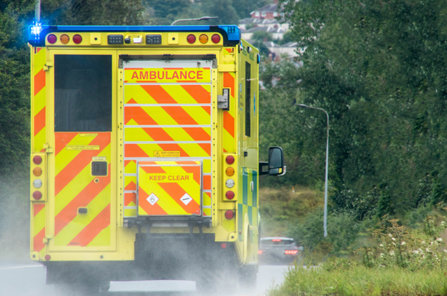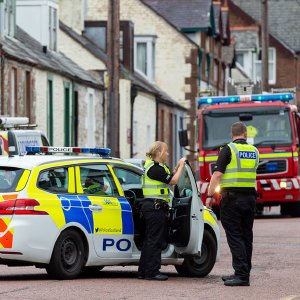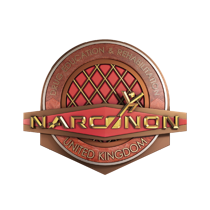Drug-Related Deaths and the Scope of Addiction in Scotland

With its beautiful Highlands and famous cities, Scottish Wool, bagpipe music, kilts, ancient castles, and some of the most influential literature and art globally, Scotland is known for its contributions to human history and culture. Sadly, in the present day, Scotland is earning international recognition for a devastating crisis, an epidemic of drug addiction and overdoses that have taken the nation by storm.
Scotland is currently experiencing a public health emergency in the form of a drug addiction epidemic, the likes of which it has never seen before. Both drug use in Scotland and drug overdose deaths have soared, creating what is thought to be the worst drug problem in Europe. What can be done to address this lethal crisis?
Drug Overdoses Per Capita—A Soaring Crisis
In recent years, Scotland has experienced a surge in drug overdose deaths. For over 20 years, overdoses in Scotland have climbed, with the years 2013 to 2019 reflecting a consistent, steep increase in fatalities. In 1996, 244 deaths resulted from drug use. By 2013, the death toll had more than doubled to 527 deaths. By 2019, it had doubled again, to over 1,264 deaths.

In just over two decades, Scotland’s overdose death rate more than quadrupled.
Drug overdoses per capita in Scotland are quite high. In fact, according to the National Records of Scotland, “Scotland’s drug-death rate was higher than those reported for all the EU countries, and was approximately 3½ times that of the UK as a whole.” Compare that to data from the European Monitoring Centre for Drugs and Drug Addiction which estimates that only about 2 Europeans die from drug overdoses for every 100,000 people living in Europe.
Per Capita Drug Use in Scotland—How Prevalent is Drug Addiction?
According to data published by Public Health Scotland, much of Scotland’s overdose crisis can be traced back to the fact that a considerably high percentage of the Scottish population uses drugs. According to the data, about 1.62% of Scottish adults experiment with hard drugs such as opiates and benzodiazepines. That percentage increases to 2.51% when cannabis, cocaine, and amphetamines are also accounted for.
Poverty and Addiction—The Two are Linked in Scotland
The director of the Scottish Drug Forum, David Liddell, wrote an open letter discussing the rising crisis of fatal overdoses in Scotland. In it, Liddell made a case for the harsh reality of Scottish drug addiction, the conditions that led to 60,000 Scottish adults addicted to drugs, and the fact that addiction and poverty go hand-in-hand in Scotland.
Liddell, one of the leading authorities on addiction in Scotland, informed his readers that Scotland has both the highest rate of per capita drug use in Europe and the highest rate of fatal drug overdoses of any country in Europe. And for comparison, Liddell remarked that though European countries like Norway and Sweden utilize very different drug policies, one to the other, they both have low rates of overdose. Liddell believes that a country’s chosen drug policy is not the only determining factor in a nation’s effort to tackle addiction. Rather, other factors such as poverty play a significant role.

Poverty in Scotland is very high. In Liddell’s eyes, Scottish poverty is so dire that it directly contributes to increased drug use and overdose rates. Liddell points out that poverty rates are very low in Norway and Sweden, and their drug use and overdose rates are also very low. Yet when you put the two countries side-by-side, Norway and Sweden have vastly different approaches to drug addiction.
Could it be that high poverty rates are a key factor driving the addiction and overdose epidemic in Scotland?
According to Public Health Scotland, about 19% of Scottish people (just under one in five) live in poverty. It is one of the highest poverty rates in the European region, and it directly influences soaring drug use (and overdose) rates.
In his letter, Liddell criticizes UK economic policy, stating that “Scotland’s drug problem has its roots in the harsh climate of 1980s deindustrialisation and the economic and social impact in the subsequent decades. Other countries chose a more interventionist approach by which the state created alternative employment and opportunity during these changes. This was not the policy in the UK. The consequence of this ongoing approach is a large and more entrenched drug problem nationally.”
And even most importantly, Liddell correctly identifies the stark need for addiction treatment in Scotland. Scotland’s treatment gap sadly keeps the majority of Scottish drug addicts in dire straits. According to Liddell, when Scottish addicts cannot receive help, they are far more likely to overdose on drugs and die.
Again quoting Liddell, “While the long-term solutions regarding the scale of our drug problem are clearly linked to reducing and eradicating poverty and inequality, we must deal with the crisis and the tragedy unfolding before us. We only have about 40% of people [of the population of addicts in Scotland] in treatment at any one time whereas, for example, England has 60%. The first part of our strategy must be to keep people alive but we also need to help not just to stabilize their drug use but get help with the wider aspects of people’s lives. These are all the issues that pushed people towards problem drug use in the first place, including poverty and the lack of hope and aspiration for a brighter future.”
Addiction Treatment—Saving Lives in Scotland
In the long-term, addressing poverty in Scotland will be a crucial aspect of permanently removing addiction from the Scottish people’s day-to-day lives. But in the here and now, getting Scottish addicts into residential drug and alcohol addiction treatment centres is a must to save lives. Drug rehabs will prevent such individuals from overdosing on drugs. Such rehabs will help Scottish addicts get their lives back.
If someone you care about is struggling with an addiction to drugs in Scotland, please contact Narconon today. Please do not wait until it is too late. Don’t let your loved one contribute to the growing list of fatal overdoses in Scotland.
Sources:
- https://www.nrscotland.gov.uk/files//statistics/drug-related-deaths/2019/drug-related-deaths-19-pub.pdf
- https://www.emcdda.europa.eu/publications/topic-overviews/prevention-drug-related-deaths_en
- https://beta.isdscotland.org/find-publications-and-data/lifestyle-and-behaviours/substance-use/prevalence-of-problem-drug-use-in-scotland-201516-estimates/
- http://www.healthscotland.scot/health-inequalities/fundamental-causes/poverty/overview-of-poverty#:~:text=Poverty%20is%20usually%20defined%20as,18%2C%20representing%201.03%20million%20people
- http://www.sdf.org.uk/blog-poverty-is-the-root-of-scotlands-fatal-drug-overdose-crisis/


